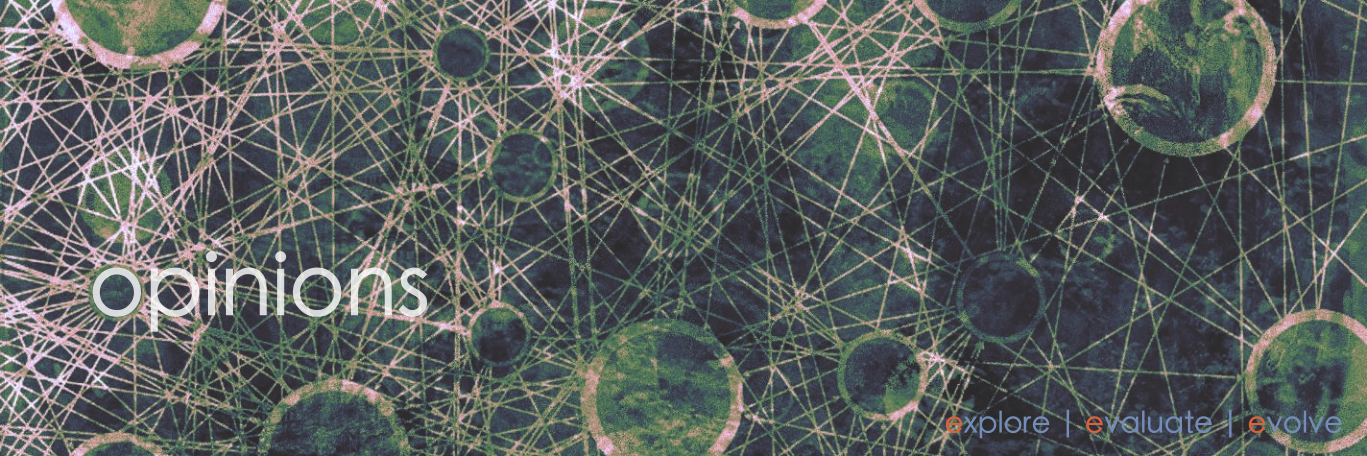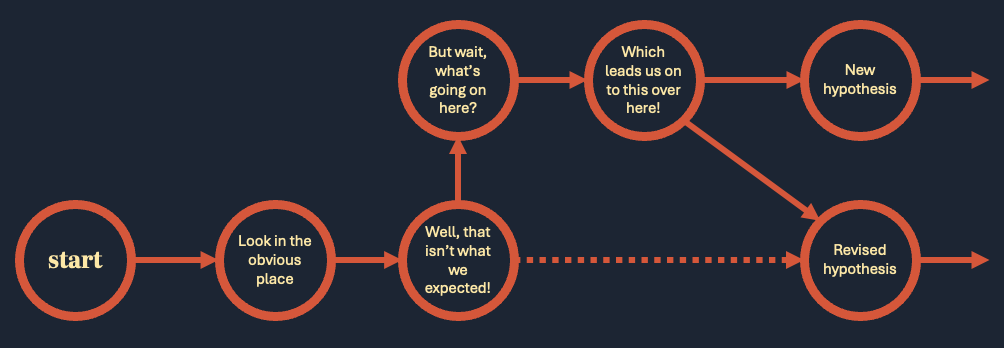
Why would you go exploring if you knew what you were going to find?
Why we explore
The urge to explore is hardwired into the human psyche. Wherever there’s a blank spot on the map, we need to go find out what, if anything, is there. Why? Because, that’s why. But often the answer to the “why?” is “because we might find something useful/exciting/valuable there”. The key word here is “might”. We had a good idea what would find in the Americas or on the moon, but we didn’t know. The point was to find out, and have a bunch of fun while doing so (and hopefully not dying!).

It’s obviously essential to know generally where you’re heading, what you might find there and why that’s significant, but once you set sail, it’s best to stay pretty open minded. What if Columbus has returned from the Americas and told Ferdinand and Isabella “we didn’t find what we thought so we just came home, but here’s a potato”? The point was discovery. (We’ll set aside the fact that Columbus was somewhat confused about what he found and refused to ever admit he was wrong) . What he brought back was knowledge. A wealth of information that would inform new voyages and the eventual genesis of the new world.
Pick your direction
So how does this look in the present time, and minus the wooden ships and scurvy? First it’s important to pick your direction, which involves setting some hypotheses based on what you already know about your business. Some examples:
- Margins are low because delivery costs have crept up and you’ve not adjusted prices
- Sales are low because the new CRM system is not being used properly
- Conversion is flat due to sub-optimal campaign messaging
Observe how those sentences are constructed: problem because reason. It’s important to state your analytical objectives this way because “find out why conversion is flat” is too woolly and open ended and will likely result in spending a bunch of time aimlessly sailing barren waters never spotting land. Why set out sailing to go “over there somewhere” when you actually already have a pretty good idea where land is? You understand your business, so use that understanding.
Set sail with an open mind
Having set out a clear hypothesis we’ve got somewhere very specific to look and a reason to do so. In addition to this we have a simple question to answer. Are creeping delivery costs the source of your margin woes? Yes or no? This is where things get really interesting, because the answer is almost always something like “somewhat” or “not no, but not yes either”.
You may think that’s a terrible place to find yourself, but think of what we’ve learned to get there. If it’s not costs then what is it? To have got to that conclusion, you’ve had to explore some adjacent waters that you weren’t expecting to find yourself in - competitors, productions costs, efficiency - and we can really start to get to the core of the problem. Of course a simple “yes” answer would have been more convenient, but reality cares about as much for your need for convenience as sea cares about your need for stable ground and a decent cup of coffee!

We often find that when we start our partnership of discovery with a client that, although the hypotheses we created as a group pointed in the right direction, what we found was not what we expected. This should never be an end point! The process of analysis is always a journey. If getting to the right answers was that easy, then we’d never need to look - it would be obvious! What you discover might not be what you expect, but it’s usually what you actually need to know.
